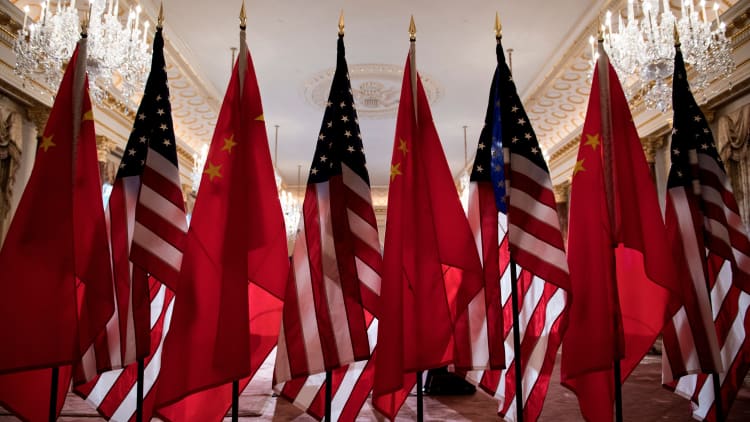
China has allowed its yuan to break through 7 against the dollar for the first time since 2008, but it insisted the move is not "competitive devaluation."
"As a responsible big country, China will abide by the spirit of the G20 leaders' summit on the exchange rate issue, adhere to the market-determined exchange rate system, not engage in competitive devaluation, and not use the exchange rate for competitive purposes and not use the exchange rate as a tool to deal with external disturbances such as trade disputes," People's Bank of China Governor Yi Gang said in a statement Monday.
The onshore Chinese yuan changed hands at 7.0304 against the dollar, while the offshore yuan traded at 7.0807 against the greenback. The Chinese currency last breached the 7 level against the dollar during the global financial crisis in 2008. The devaluation can make Chinese exports cheaper.
The yuan's breakthrough came after President Donald Trump abruptly heated up the trade war with China on Thursday, announcing the U.S. is putting 10% tariffs on another $300 billion worth of Chinese goods, effective Sept. 1. The president claimed Thursday that China failed to buy U.S. agricultural products "in large quantities" as it promised in June.
"This fluctuation is driven and determined by the market," Yi said. "Whether it is from the fundamentals of the Chinese economy or from the balance of market supply and demand, the current RMB exchange rate is at an appropriate level. Although the RMB exchange rate has fluctuated due to recent external uncertainties, I am confident that the RMB will continue to be a strong currency," Yi said, referring to the renmimbi, another name for the yuan.
A separate statement from the Chinese central bank linked the yuan's move to "unilateralism, trade protectionism measures and the increase of tariffs on China."
Trump accused China of manipulating its currency following the yuan's action on Monday.
"China dropped the price of their currency to an almost a historic low. It's called 'currency manipulation.' Are you listening Federal Reserve? This is a major violation which will greatly weaken China over time!" Trump said in a tweet.
Many analysts agree that by allowing yuan's free fall, China has weaponized its currency in the intensified trade war with the U.S.
"The fact that they have now stopped defending 7.00 against the dollar suggests that they have all but abandoned hopes for a trade deal with the U.S.,"Julian Evans-Pritchard, senior China economist at Capital Economics, said in a note. "The PBOC has effectively weaponized the exchange rate, even if it is not proactively weakening the currency with direct FX intervention."


